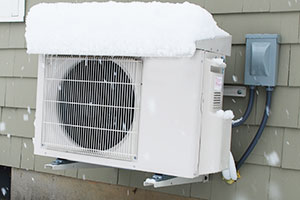Heat Pumps
Over 200,000 heat pumps have been installed in Maine homes and businesses and they are now more common than oil heat in new homes (source: 2021 Maine New Construction Baseline Assessment). Efficiency Maine offers heat pump rebates for residential and commercial customers. Click here to find a contractor near you.
Benefits
- Save money
- Increase year-round comfort
- Heat
- Air conditioning
- Dehumidification
- Air filtration
- Indoor air circulation
- Run on Maine’s increasingly renewable electricity*
- No combustion fumes
- No fuel tank or fuel leaks
- No need to monitor fuel level
- No heavy, inefficient window air conditioners
* According to the Energy Information Administration, 67% of Maine’s 2023 in-state net generation was renewable.
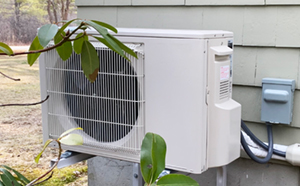
Heat pump outdoor unit
How do they work?
Heat pumps consist of an outdoor unit connected to one or more indoor units by a line set, which carries heat between the two. Heat pumps are able to provide efficient heating in cold climates even at outdoor temperatures as low as -22°F.
There are four types of indoor units:
1) Wall units
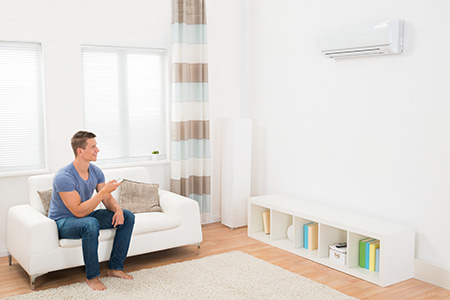
2) Floor units
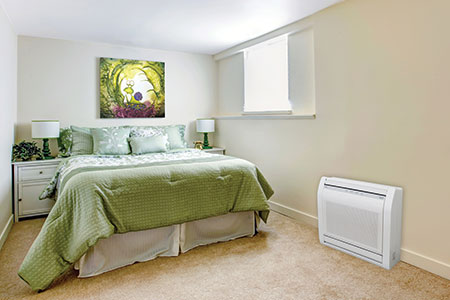
3) Ceiling cassettes
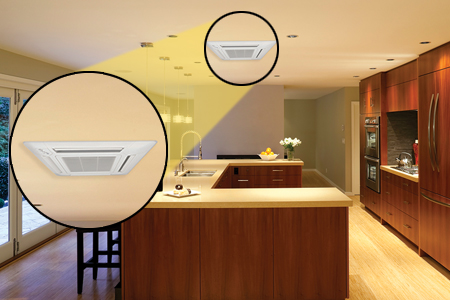
4) Ducted
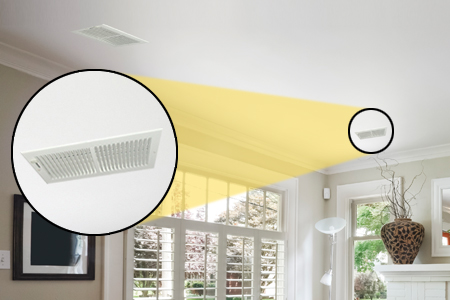
Financial Example
Example based on a system with two indoor units. Your home may need fewer or more.
| Low Income |
Moderate Income |
Any Income |
|
|---|---|---|---|
| Installed Cost (2 indoor units) | $10,000 | $10,000 | $10,000 |
| Rebate | -$6,000 | -$4,000 | -$2,000 |
| Final Cost | $4,000 | $6,000 | $8,000 |
| Annual PROPANE Savings* | $1,201 | $1,201 | $1,201 |
| Payback Period (years) | 3.3 | 5.0 | 6.7 |
* Your results may differ. Source: Efficiency Maine Compare Home Heating Costs as of 12/23/2025. Propane at $3.15/gallon, 93% combustion efficiency, and 90% distribution efficiency. Electricity at $0.27/kWh. Heat pump COP is 3.15 and has 100% distribution efficiency.
What are other considerations?
- Cold temperature performance – Efficiency Maine rebates only the highest performing units. Heat pump technology has improved significantly in recent years, and many heat pumps work down to -31°F. You should work with your installer to make sure the heat pumps selected are appropriate for your location.
- Air movement – Heat pumps do not bring fresh air into the home, but they do recirculate air. Air blowing directly on you can increase comfort during the cooling season, but can be uncomfortable during the heating season. Take a look at Efficiency Maine’s heat pump user tips for recommended fan settings for the heating and cooling season.
- Heat distribution – Heat pumps rely on air movement to distribute heat. This can make it hard to get heat around corners and into dead-end spaces. Take a look at Efficiency Maine’s heat pump user tips and installation considerations to learn how to get the most from a heat pump.
- Interactions with the primary heating system – If you are thinking about using a heat pump along with another heating system, make sure to locate the heat pump where it won’t conflict with the other system’s thermostat. This kind of conflict could result in one system preventing the other from running. This is not a risk if you are using a heat pump as your only heating system. Take a look at Efficiency Maine’s heat pump installation considerations for tips on where to install your heat pump.
- Aesthetics – Indoor and outdoor units can be more visible than components of other heating systems.

